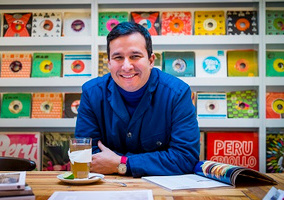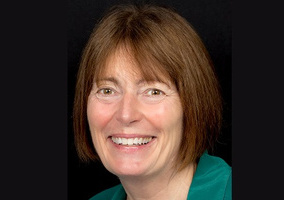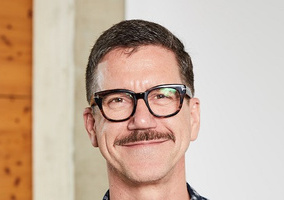Happy Friday, readers, and well done on nearly making it to the end of another month. This week, Society Diary sat down for a light-hearted chat with the chief executive and artistic director of Brighton-based arts charity Lighthouse, Alli Beddoes.
Beddoes (and Chat GPT) discusses time travel, starch and why we are all geniuses, really.
Read our conversation below.
Have we caught you at a good time?
“I am a firm believer that not every day is good, but there is always something good in every day.”
What’s more fun – being a charity CEO or an artistic director?
“Both roles have their own fun in different ways. Being an artistic director is great, being close to the creative process: working directly with artists, shaping ideas, and helping bring new work into the world. That's an honour.
“Honestly, it's time to step back from that side and hand the artistic director role over to new talent. I've been working in the sector for over 20 years, and I've loved it, but I'm more interested in what happens when you step aside for new voices to come through, focusing on creating the conditions that allow others to thrive. Being a CEO should be about ensuring the organisation is strong enough to give artists and new leaders the room and support they need to push things forward.”
You studied sculpture at Loughborough University. What’s the best thing you made?
“I made all sorts of things while I was there – installations, short films, painting, photography – and I became a bit of a demon with an oxy-acetylene welder. But honestly, the best thing I made wasn’t a single piece of work, it was the events and exhibitions I put together in my second year. I pulled together a group of artists in my year to show our work at the Custard Factory in Birmingham back in 2000.
“I spent a lot of time experimenting and focusing on building something that reached beyond university. I organised events, helped friends bring their creative ideas to life, and together we built a network of like-minded people. That, to me, was the most valuable thing.”
As someone who’s been working in Brighton for many years, what makes it different from the rest of the UK?
“Brighton’s always stood out to me for its incredible pool of talented young people and the sheer amount of expertise right on our doorstep. I have an amazing network of friends, collaborators and colleagues and they all connect in a beautiful Venn diagram. Brighton is a city full of creative collaboration and energy, but I think it is massively undervalued and right now, the cracks are really starting to show.
“Our Lighthouse Project Space opened its doors last year in May 2024, and in just a short time, we've featured over 75 artists and welcomed more than 2,500 people through. The community response has been overwhelming — people tell us how much they need this space, and it’s clear the city does too. Yet, securing the funding to keep it alive remains an uphill battle.”
What’s the biggest artistic mistake you’ve made?
“The biggest artistic mistake I made was stopping. I convinced myself, quite early on, that I was a failed artist because I didn’t have a practice, a studio, a gallery or whatever I thought at the time defined “success”. Even though, in reality, I was still creating, still writing, still building things, just through collaboration with and for other people. Looking back, I realise that was a misunderstanding of what making art is.”
Rice or pasta?
Rice.
Which fictional character do you relate to the most?
“I had to ask Chat GPT to answer this for me. It said: ‘I’d probably say Amélie Poulain from Amélie. I relate to the quiet way she observes the world, noticing the small details that others miss, and her drive to create these little, almost invisible moments of connection and joy for people around her. I think there’s something about working behind the scenes — whether in the arts, organising, or collaborating — that feels a bit like that. You might not always be in the spotlight, but you’re quietly helping to shape stories and spaces for others.’”
If you could live in another era, which would you pick?
“To be honest, I’m not sure the past holds much appeal. Looking back, most eras have had their fair share of challenges and inequalities. If I had the choice, I’d rather look to the future, shall we say 2070?
“We’re living in a remarkable moment in human history. For the first time, we have the knowledge, technology and collective understanding to shape the kind of world we want and need.
“Of course, on a day-to-day level, it can feel difficult to be optimistic. We see wildlife in crisis, people facing war and displacement and families struggling with rising costs.
“But when you step back, you start to see long-term change taking shape — slow, steady progress that builds over decades. I’d like to believe the future holds more of that, and I’d be especially excited to see what the next generation of creative minds will have achieved.”
As someone who works with performers, are there any Hollywood stars you think are overrated?
“Nope. I truly believe that we're all geniuses deep inside… The challenge is unlocking the right conditions to let ideas surface.”
If you couldn’t work in the charity or arts sectors, what would you do instead?
“I’d be an electrician or a farrier. The kind of work rooted in craft and problem-solving, whether that’s helping to shape creative communities or quite literally fixing something that’s broken or tired. Both aren’t so different from the work I do now. Both are about connection, care, and building things.”












